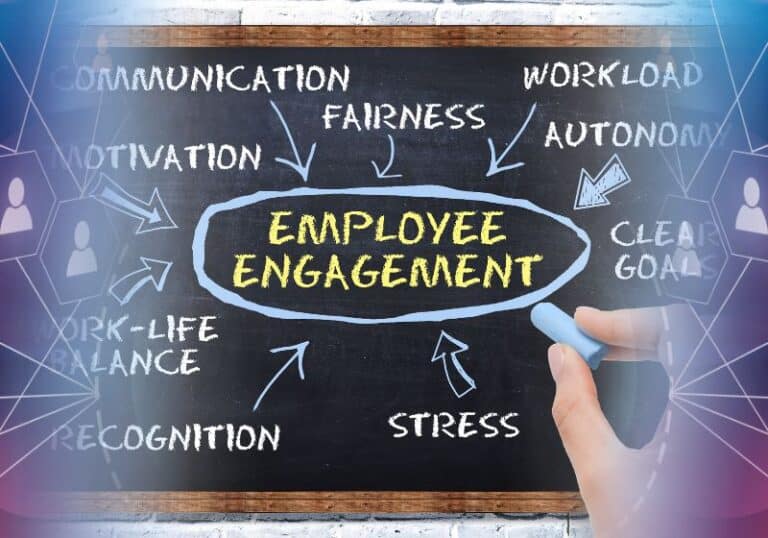Difficult Employee Series: Uncooperative Behaviour

Whether it’s resistance to teamwork, defiance of company policies, or a general lack of team spirit, addressing uncooperative behaviour is vital for maintaining a positive and productive work environment. In the latest of our Difficult Employee Series, we’ll explore different types of uncooperative behaviour and provide strategies for managing it effectively.
“When you don’t respond to bad behaviour, you get more of it.”
- Carly Fiorina, Former MD of Hewlett Packard
Understanding Uncooperative Behaviour
Uncooperative behaviour can manifest in various ways. But what is uncooperative behaviour?
Uncooperative behaviour can manifest in various forms, each undermining collective effort. It often starts with a refusal to participate, where individuals actively choose not to engage in group activities, discussions, or tasks. This is closely tied to non-compliance with established rules, guidelines, or instructions, indicating a disregard for shared norms.
Resistance to authority is another hallmark, with individuals defying leaders or challenging decisions without constructive feedback. This behaviour may also include a lack of communication, characterised by not sharing information, failing to listen, or avoiding productive dialogue.
Withholding support, another form, involves refusing to help or assist others when needed. Central to uncooperative behaviour is a negative attitude—pessimism, cynicism, or a general negativity that erodes group morale.
In its most destructive form, uncooperative behaviour escalates to sabotage, intentionally obstructing or undermining the efforts or projects of others. Such behaviours stem from various causes, including personal disagreements, lack of motivation, misunderstandings, and issues related to trust and respect.
Addressing these behaviours requires a focus on identifying underlying causes, fostering open communication, and implementing conflict resolution strategies, all aimed at creating an environment where cooperation and mutual respect are prioritised.
Addressing Uncooperative Behaviour
The first step in managing uncooperative behaviour is to identify the root cause. Is the employee struggling with personal issues? Are they feeling undervalued or overworked? Have they been given clear expectations and feedback on their performance?
Once the underlying cause has been determined, it’s essential to address the behaviour directly and in a calm, professional manner. Document specific examples of the employee’s uncooperative behaviour and use them as evidence during discussions. Be sure to listen to their perspective and try to find common ground.
The following steps can help guide you through this process, so that you and your staff can come to a point of reconciliation and progress.
- Identify Underlying Causes:
Prior to applying corrective measures, it’s crucial to comprehend the root causes of non-cooperative behaviour. This could include personal issues, dissatisfaction with work, miscommunication, or a lack of clarity concerning roles and expectations.
Conduct frank and sincere conversations with the employee to gain insights into their viewpoint. Remember that, first and foremost, people are individuals and pose unique challenges; as do their problems. Sometimes, a sensitive ear is a more powerful weapon than a scornful hand.
- Set Clear Expectations:
Uncertainty in roles and responsibilities can contribute to behaviour that falls outside the spirit of collaboration. Clearly delineate expectations for each employee and department. Regularly communicate these expectations via team meetings, emails, or individual discussions. When employees understand what is expected of them, they are more likely to engage cooperatively.
- Encourage Open Dialogue:
Foster an atmosphere where employees feel at ease expressing their concerns, ideas, and feedback. Promote open conversation through regular team meetings, suggestion boxes, or anonymous feedback channels. Addressing communication gaps can assist in mitigating uncooperative behaviour by ensuring employees feel acknowledged and valued.
In this way, when uncooperative behaviour does take place, then the employee in question (and other staff and management) have means to address it without causing undue disruption.
- Provide Constructive Feedback:
When handling uncooperative behaviour, concentrate on delivering constructive feedback instead of using a punitive approach. Clearly express the specific behaviours that need improvement and offer guidance on how to address them.
Acknowledge positive contributions and reinforce wanted behaviours to inspire employees to collaborate effectively. A deft touch is preferable where appropriate, and it is important as a leader to show gratitude when it is due.
- Promote Team Building Activities:
Uncooperative behaviour often stems from strained relationships among team members. Organise team-building activities, workshops, or training sessions to enhance interpersonal skills and foster a sense of unity. A cohesive team is more likely to work together harmoniously, reducing instances of non-cooperative behaviour.
Team-building activities can take various forms, such as outdoor exercises, problem-solving challenges, or social events. These activities should be designed to encourage communication and collaboration among team members. For instance, a scavenger hunt can help improve problem-solving skills while also encouraging teamwork and cooperation.
Meanwhile, workshops and training sessions can focus on specific areas of conflict resolution, effective communication, or leadership skills. These sessions can provide team members with the necessary tools to navigate difficult situations and foster a more positive work environment.
Whichever tool you wish to use, set clear boundaries and expectations for the initiative and follow through with them rigorously.
- Integrate Conflict Resolution Strategies:
In the occurrence of disputes among employees, have a structured conflict resolution process ready. Lean on existing policies, amend those that require amending and encourage involved parties to discuss their concerns in a neutral and controlled setting. Mediation or third-party intervention might be required in more complex scenarios to guarantee a fair and impartial resolution.
Additionally, it is important for employers to foster a culture of open communication and transparency within the workplace. This can help prevent conflicts arising in the first place, as employees will then feel at ease expressing their concerns and addressing issues before they escalate.
- Offer Leadership Training:
As with everything in the world of business, leaders have a crucial role in shaping workplace culture. Extend leadership training programmes to supervisors and managers, stressing the need to promote cooperation and teamwork. Equipping leaders with the skills to positively address uncooperative behaviour can have a cascading effect on the entire team and nip potential problems in the bud.
- Define Boundaries and Consequences:
Clearly communicate company policies and the repercussions of bad behaviour. While providing the above opportunities for improvement is always important, make it known that repeated violations will lead to disciplinary actions, and eventually, dismissal.
Consistency in enforcing policies sends a potent message: that the value of cooperation within the organisation is paramount, and that those who trespass it are to be treated the same regardless of their position.
Effectively handling uncooperative behaviour necessitates a robust strategy that deals with the individual fairly yet firmly, and cultivates a collaborative and positive work environment. Keep in mind that addressing this type of behaviour is an ongoing process that demands dedication, communication and a pledge to encourage a culture of teamwork and cooperation. As Henry Ford put it, “if everyone is moving forward together, then success takes care of itself”.
For further advice, tips and for assistance with an especially uncooperative employee, why not get in touch with our friendly, dedicated team of professional HR experts today on 01455 444 222 or email [email protected] or visit our Services page to see how we can help your business
Angela Clay
A qualified employment law solicitor and our managing director, Angela has unparalleled legal expertise and decades of experience and knowledge to draw from. She’s a passionate speaker and writer that loves to keep employers updated with upcoming changes to legislation, and is a regular guest speaker on BBC Leicester Radio.




